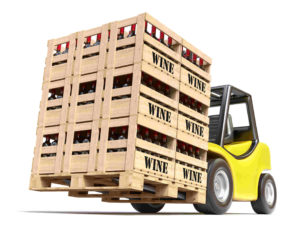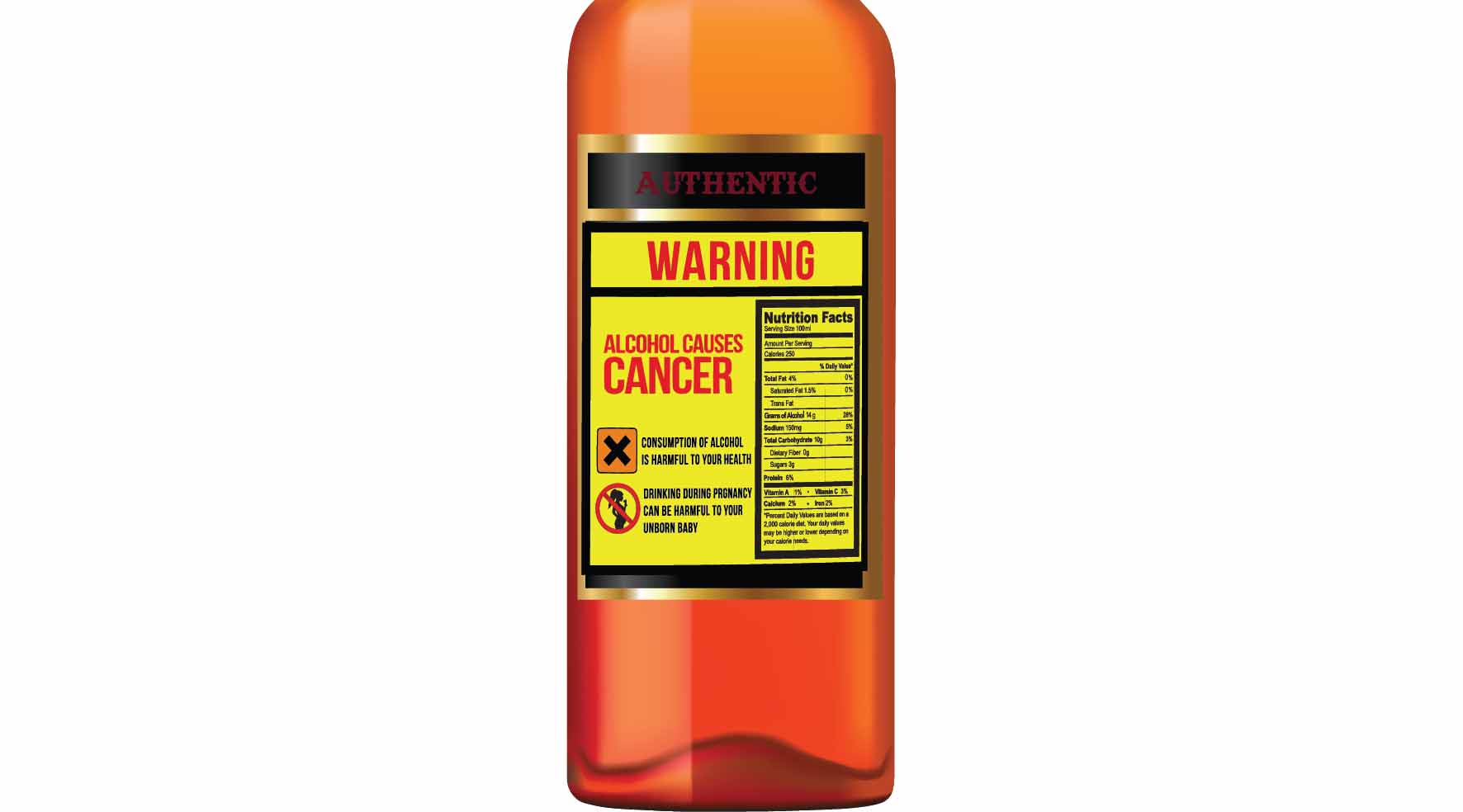How are our importers bearing up to Brexit?

The Irish government “fully recognises and acknowledges that this presents significant challenges and imposes additional burdens on hauliers and on all businesses trading with Great Britain”.
It has been predicted that Britain’s departure from the EU Single Market and Customs Union will lead to a 12-fold increase in the amount of paperwork via customs declarations on Irish-British trade to 20 million forms a year.
For its part, the Irish government “fully recognises and acknowledges that this presents significant challenges and imposes additional burdens on hauliers and on all businesses trading with Great Britain”.
In an Expert View piece for Drinks Industry Ireland last December, EY pointed out, “Understandably, for industry sectors like the drinks industry where certain products have high duty rates, the focus has been on the additional costs of tariffs in the event of a hard Brexit. The EU’s customs union has meant that movements of goods to and from the UK have not had to deal with such standard cross-border costs for almost 30 years. From the 1st of January the responsibility will now be on the importing entity to pay these upon import but the implications for overall landed costs and competitiveness will impact the whole supply chain.”
This was brought into focus with lower than anticipated flows of goods from Great Britain to Ireland in January despite a temporary relaxation of Revenue’s customs arrangements and border controls to aid firms not yet Brexit-ready.
In response to delays and hold-ups at ports as Brexit took its grip on importers and exporters the Revenue Commissioners issued an emergency Movement Reference Number for the new post-Brexit EU-UK border. Hauliers can temporarily avail of this emergency MRN where they’re having difficulty completing pre-boarding paperwork, thus permitting them to process goods onto ferries from Britain.
The Revenue Commissioners had recognised that some businesses were “experiencing difficulties” in lodging their safety and security entry summary declaration, known as an ENS, for moving goods on roll-on, roll-off lorries and other goods vehicles.
“In response, Revenue is implementing a temporary easement to alleviate these current difficulties,” said Ray Ryan, an official in the Brexit unit of Revenue’s Customs division, at the time.
Thus, those transporting goods have been able to avail of this temporary MRN to cover them against the usual requirement for an ENS and a unique MRN, necessary for progressing a Pre-Boarding Notification.
Going forward
Over here, Irish wine and spirits importers have responded to the challenge as best they can.
In early January Drinks Ireland Director Patricia Callan told Drinks Industry Ireland that, “There are a range of issues impacting on imports in particular. The overall administrative burden is very heavy and companies have had the additional expense of having to recruit or re-allocate additional human resources for this and are still struggling with it and the related IT systems.
“The temporary easement introduced by Revenue reduced delays,” she admitted, adding that whilst import volumes were relatively low at that point, delays/difficulties continued to be experienced.
“We’re working with the authorities who’re responding with guidance and clarifications and we’re communicating all this to our members. It’s important that businesses incorporate all recently-issued guidance and clarifications into their supply chain processes and that authorities take as pragmatic an approach to enforcement as is possible. There also needs to be a recognition that the UK has left the customs union so this is permanent.”
Revenue’s three-month grace period is due to run out at the end of this month. This will mean a considerable increase in bureaucracy and paperwork.

Those transporting goods have been able to avail of this temporary MRN to cover them against the usual requirement for an ENS and a unique MRN, necessary for progressing a Pre-Boarding Notification.
Importers’ take
We spoke to a few wine and spirits importers to discover their experience.
Most of the spirits imported by Edward Dillon & Co, for example, are delivered directly to Dublin from Rotterdam, France, or elsewhere in mainland Europe and so Dillon’s doesn’t have an over-reliance on the UK land bridge.
“The only products to come out of GB are Bombay Sapphire and some of the Scotch whisky we carry” explains Dillon’s Commercial Director John Cassidy, “and to date we haven’t had any issue with delays – but we did take precautions and carried extra stock as a ‘just in case’.”
Australian Vintage is responsible for importing the popular McGuigan’s wine range which is landed in the UK.
“While there were some challenges, we’ve worked through them without too many issues,” says Julian Dyer, Australian Vintage’s Chief Operating Officer for the UK, Europe and America.
Australian Vintage is used to importing third country wines into the EU (all its wine is Australian) so the new import processes, including the requirements for VI-1s, are something it’s used to.
“We were prepared for a period when we’d have to be testing the waters in the first instance and while paperwork and processes have increased, we’ve still been able to supply both markets,” says Julian.
As for the new labelling requirements, he explains, “Since we had plenty of time to plan, we updated our labels in 2020 to ensure they’re compliant with new regulations.
“We don’t expect to see any significant delays due to Brexit moving forward” he concludes, “we’re already managing well within the new ways of working and we expect this to continue to become easier still over time as we all get used to these.”
But the potential for congestion at Irish ports in the first few weeks of the year concerned importers such as Bibendum Ireland.
Therefore, prior to the Brexit deal being struck on Christmas Eve, it had increased its warehousing capability here on key lines and had arranged around four to eight weeks’ extra stock to be held.
The majority of its wine comes deep sea from Chile and Argentina but it also takes direct non-EU supplies from Australia, New Zealand and South Africa. Bibendum Ireland’s biggest purchase ex-UK is [yellowtail] which accounts for approximately 15% of its total supply.
Duncan Millar, Bibendum Ireland’s Sales Director, hasn’t reported too many issues since the 1st of January.
“The first week was a little frustrating as we thought we had all our ducks in a row but some goods were getting through and some were being put in the ‘red-lane’ ” says Duncan.
“Our logistic partners ‘haul’ for a number of suppliers and they’d experienced similar issues with other categories other than just alcohol.
“Thankfully we’re not involved in ‘Just In Time’ scenarios where products have a four- or five-day shelf life which must be considerably more difficult to manage so we were able to build stocks in Ireland. Overall, it’s been manageable so far and we’ve not had any major issues.”
Beer
Bulmers Ireland, the parent company, had originally bought in stock of its beer lines, mainly from the Budweiser Brewing Group in the UK (for Budweiser & Corona).
“We brought in enough stock pre-New Year to cover our January requirements for immediate post-Brexit trading,” says Duncan, “However, we’d a stronger last two weeks in December than anticipated and therefore found ourselves shipping stock from 1st January.”
Despite the Revenue Commissioners reporting that, of the goods arriving into Dublin and Rosslare Ports, the majority were being green routed and could exit the ports directly on disembarkation Duncan reported that at times things appeared to be “a little bit hit & miss”.
He explains, “On occasions we shipped the same product with the same documentation on the same vessel but found that one could get green-laned and one red-laned for no apparent reason. However, lately, we’ve not had many issues on the beer import side.”
Within Britain itself it was hoped that Brexit would boost the brewing scene in the UK
with more customers buying local, but slow January sales and Covid coupled with the
‘Dry January’ movement there seem to have stymied this aspiration.
Not only that, but brewery supplies from the EU as used by British brewers
(such as hops and packaging which come in from the EU)
are likely to witness an increase in price.
Common Customs Tariff
From a wine perspective there are three main impacts with arrangements since Brexit. Firstly, the requirement to supply from GB into Europe on EU-approved heat-treated pallets. Secondly the imposition of Common Customs Tariff changes.
“This affects us where wine goes into the UK in bulk and then out in bottle format so we’re paying CCT at the higher bottle rate as it’s transhipped through the UK,” says Duncan.
The third impact concerns the requirement around labelling stock.
“Our [yellowtail] brand was initially put ‘onto the market’ by pre-ordering and invoicing so it could be moved with the old labels,” he explains, “Along with a lot of other companies, the brand owner, Casella Family Brands Europe, has now opened up an office within the EU (in Dublin in this case) so we’re now receiving dual-labelled stock”.
A stakeholders’ forum for the Haulage and Logistics Sector, including the Irish Road Hauliers Association and the Freight Transport Association of Ireland, still meets weekly under the Department of Transport comprising representatives from the Revenue Commissioners, the Department of Agriculture and the Marine and the HSE.

Revenue’s three-month grace period is due to run out at the end of this month. This will mean a considerable increase in bureaucracy and paperwork.









